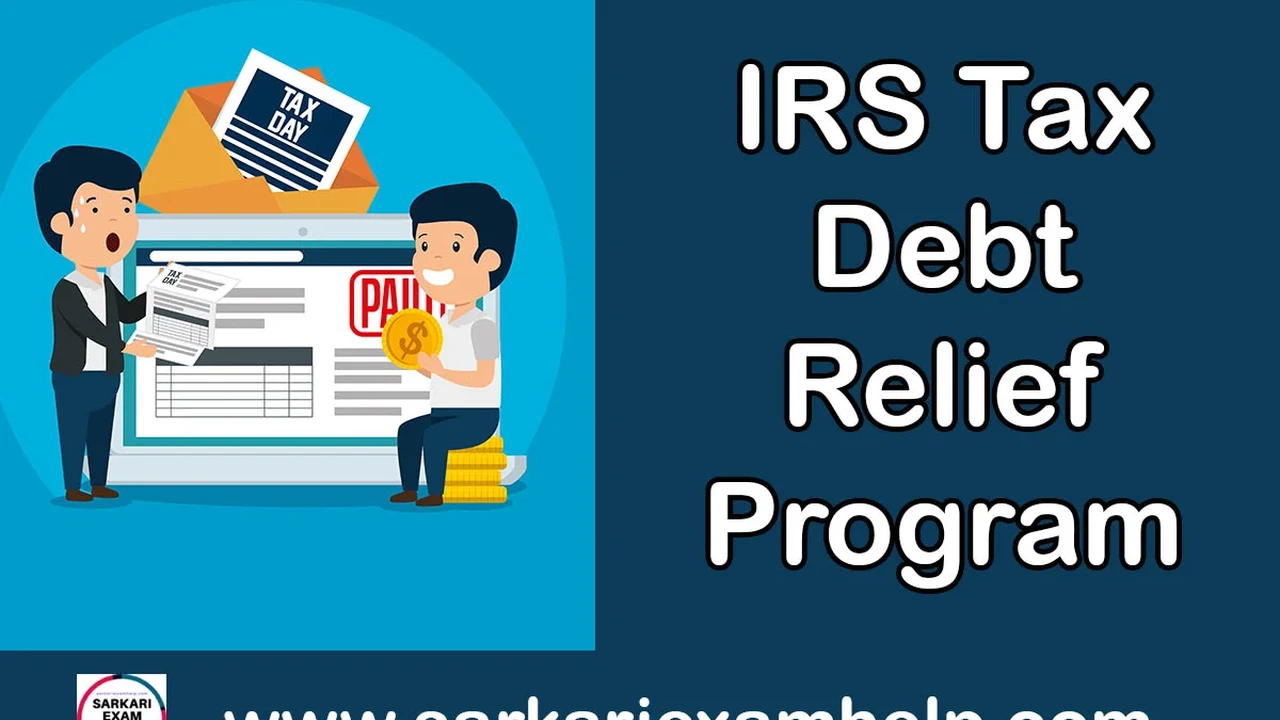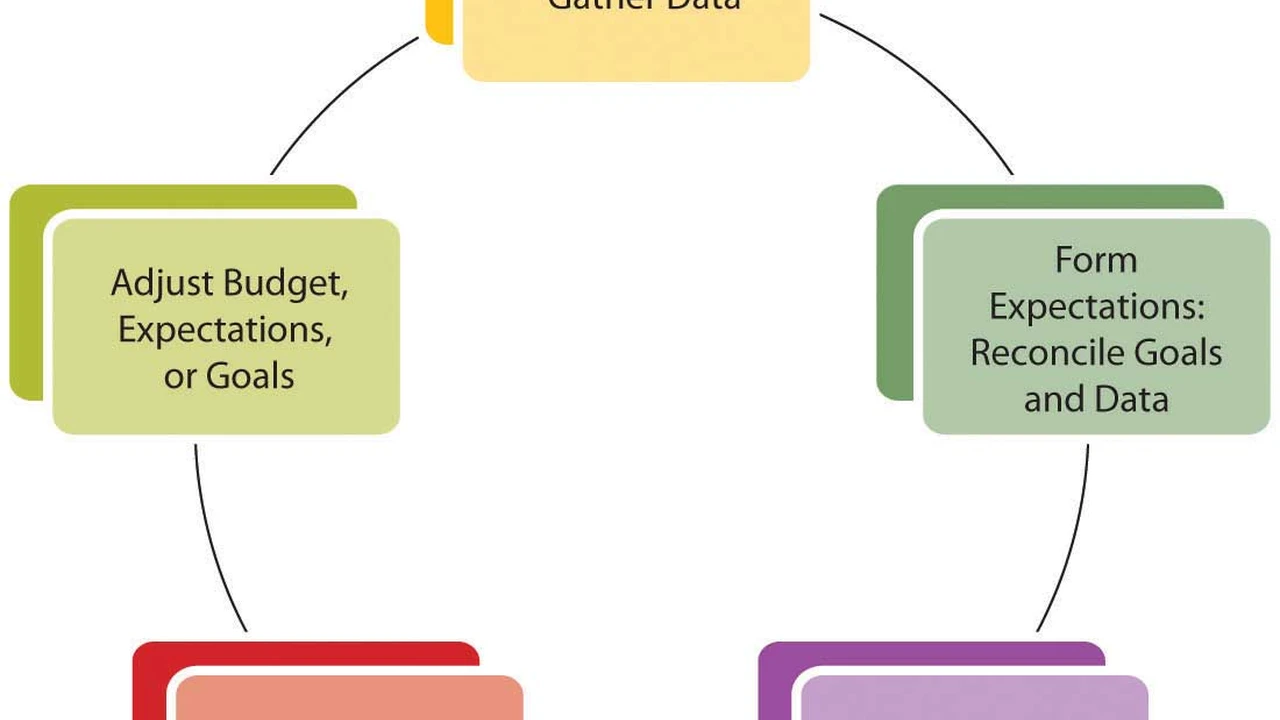Comparing IRS Tax Debt Relief for Individuals vs Businesses
Explore the differences in IRS tax debt relief options available for individual taxpayers versus small businesses. Understand unique challenges, specific programs, and recommended strategies for both, including product comparisons and pricing.

Comparing IRS Tax Debt Relief for Individuals vs Businesses
Facing tax debt can be incredibly stressful, whether you're an individual taxpayer or a small business owner. While the IRS offers various relief programs, it's crucial to understand that the options and processes can differ significantly depending on whether the debt is personal or business-related. This comprehensive guide will walk you through the nuances, helping you identify the best path forward, complete with product comparisons and pricing insights.
Understanding Individual Tax Debt Relief Options for Personal Taxpayers
When you owe the IRS personally, it usually stems from unpaid income taxes, self-employment taxes, or penalties. The IRS has several programs designed to help individuals get back on track. Let's dive into the most common ones.
Offer in Compromise OIC for Individuals
An Offer in Compromise (OIC) allows certain taxpayers to resolve their tax liability with the IRS for a lower amount than what they originally owe. It's essentially a settlement where the IRS agrees to accept less than the full amount due when there's doubt as to collectibility, doubt as to liability, or effective tax administration. For individuals, the IRS looks at your ability to pay, your income, expenses, and asset equity. The goal is to determine your 'Reasonable Collection Potential' (RCP).
- When it's a good fit: If you have significant tax debt and your current financial situation (income, assets, and expenses) indicates you cannot pay the full amount within the collection statute of limitations.
- Key considerations: You must be current with all filing and payment requirements. The application process (Form 656) is complex and requires detailed financial disclosure.
- Product comparison: While not a 'product' in the traditional sense, many tax relief companies specialize in OIC preparation. Firms like Optima Tax Relief and Tax Defense Network are well-known for their OIC services. They typically charge a flat fee for OIC preparation, ranging from $2,500 to $7,500, depending on the complexity of your case. DIY is possible, but often leads to rejection due to errors.
Installment Agreement IA for Individual Tax Debt
An Installment Agreement (IA) lets you make monthly payments for up to 72 months. This is a much simpler option than an OIC and is generally available to most taxpayers who owe $50,000 or less in combined tax, penalties, and interest.
- When it's a good fit: If you can afford to pay your full tax debt over a period of up to six years, but need more time than the IRS's standard payment deadlines.
- Key considerations: Interest and penalties continue to accrue until the debt is paid in full. You must remain compliant with all future tax filings and payments.
- Product comparison: You can set up an IA directly with the IRS online (if you owe $50,000 or less) for a setup fee of $31 (direct debit) or $130 (other methods). Many tax relief companies, such as Community Tax or Jackson Hewitt Tax Resolution, can also help set this up, often as part of a broader service package. Their fees for this specific service might be lower, perhaps $500 to $1,500, but the direct IRS option is the most cost-effective if you qualify.
Currently Not Collectible CNC Status for Individuals
If the IRS determines that you cannot pay your tax debt and meet your basic living expenses, they may place your account in Currently Not Collectible (CNC) status. This means the IRS temporarily stops collection efforts, though interest and penalties continue to accrue, and the tax lien may remain.
- When it's a good fit: For individuals experiencing severe financial hardship, where paying the tax debt would prevent them from meeting basic necessities.
- Key considerations: The IRS will periodically review your financial situation, and if it improves, they can resume collection efforts.
- Product comparison: This is typically handled by tax professionals who can demonstrate your financial hardship to the IRS. Firms like Tax Group Center or Anthem Tax Services can assist. Fees for CNC negotiation can range from $1,000 to $3,000, depending on the complexity of proving hardship.
Penalty Abatement for Individual Taxpayers
The IRS may remove or reduce penalties if you have a reasonable cause for failing to file or pay on time. This is often overlooked but can significantly reduce your overall debt.
- When it's a good fit: If you can demonstrate a reasonable cause (e.g., serious illness, natural disaster, incorrect advice from a tax professional) for your non-compliance. First-time penalty abatement is also an option for compliant taxpayers.
- Key considerations: Documentation is key. You'll need to provide evidence supporting your reasonable cause.
- Product comparison: Many tax resolution firms, including Liberty Tax Resolution, offer penalty abatement services. Fees can vary widely, from $500 to $2,000, often depending on the number of penalties and the complexity of the justification.
Navigating Business Tax Debt Relief Options for Small Businesses
Business tax debt often involves different types of taxes, such as payroll taxes (Form 941), corporate income taxes (Form 1120), or self-employment taxes for sole proprietors. The IRS takes payroll tax debt particularly seriously because it represents money withheld from employees' wages that was not remitted to the government.
Offer in Compromise OIC for Business Tax Debt
Similar to individuals, businesses can also apply for an OIC. The IRS will evaluate the business's ability to pay, its assets, and future earning potential. For businesses, this often involves a more complex financial analysis, including business assets, accounts receivable, and inventory.
- When it's a good fit: If your business is struggling financially and cannot realistically pay its full tax liability.
- Key considerations: The business must be current on all filing and payment obligations. If the business is a corporation or partnership, the OIC process can be more intricate, potentially involving personal guarantees from owners.
- Product comparison: Business OICs are generally more complex and thus more expensive to prepare. Firms like Tax Law Center or Fortress Tax Relief specialize in business tax resolution. Their fees for business OIC preparation can range from $4,000 to $15,000+, depending on the size and complexity of the business and its debt.
Installment Agreement IA for Business Tax Debt
Businesses can also enter into Installment Agreements. However, the thresholds and requirements can be different. For example, businesses owing up to $50,000 in combined tax, penalties, and interest can often qualify for a streamlined IA.
- When it's a good fit: If your business has a steady cash flow and can afford to make regular monthly payments to pay off the debt within the IRS's timeframe.
- Key considerations: The business must remain compliant with all future tax obligations. For payroll tax debt, the IRS often requires a deposit of current payroll taxes before approving an IA.
- Product comparison: Similar to individuals, businesses can set up IAs directly with the IRS. However, due to the complexities of business finances, many opt for professional help. Tax resolution firms like Precision Tax Relief or Federal Tax Relief can assist, with fees typically ranging from $1,000 to $3,000 for setting up and negotiating business IAs.
Trust Fund Recovery Penalty TFRP for Business Owners
This is a critical distinction for business owners. If your business fails to pay over employment taxes (the 'trust fund' portion of payroll taxes), the IRS can assess the Trust Fund Recovery Penalty (TFRP) against individuals deemed 'responsible persons' who willfully failed to collect or pay over these taxes. This means the business debt can become a personal debt for the owner or other responsible parties.
- When it's a good fit: This isn't a relief option but a penalty to be aware of and potentially fight. If you've been assessed a TFRP, you'll need to prove you weren't a 'responsible person' or that your failure wasn't 'willful.'
- Key considerations: The IRS has a broad definition of 'responsible person.' This can include owners, officers, directors, or even employees with significant control over financial affairs.
- Product comparison: Fighting a TFRP often requires the expertise of a tax attorney or an Enrolled Agent specializing in business tax law. Firms like Winston & Strawn LLP (for large cases) or specialized tax law firms like The Tax Law Offices of David W. Klasing are often engaged. Legal fees can be substantial, ranging from $5,000 to $25,000+, depending on the complexity of the case and the amount of the penalty.
Business Bankruptcy for Tax Debt
In severe cases, a business might consider bankruptcy. Chapter 7 (liquidation) or Chapter 11 (reorganization) can impact tax debt differently. For instance, some older, unsecured tax debts might be dischargeable in bankruptcy, but payroll taxes are generally not.
- When it's a good fit: When the business is facing overwhelming debt, including tax debt, and other relief options are insufficient.
- Key considerations: Bankruptcy has significant long-term implications for the business and its owners. It's a last resort.
- Product comparison: This requires a bankruptcy attorney. Firms like Nelson & Nelson, Attorneys at Law or local bankruptcy specialists can guide you. Bankruptcy legal fees can range from $3,000 to $15,000+ for small business cases, depending on the chapter and complexity.
Key Differences and Overlapping Strategies in Tax Debt Relief
While many relief programs share names, their application and implications for individuals versus businesses are distinct.
Asset Protection and Personal Liability
For individuals, the focus is on protecting personal assets like homes, retirement accounts, and savings. For business owners, especially those of sole proprietorships or partnerships, business assets are often intertwined with personal assets. Corporations and LLCs offer some protection, but the TFRP can pierce that veil for payroll taxes.
Complexity of Financial Analysis
Individual financial analysis for OICs or CNC status is usually straightforward: income, expenses, personal assets. Business financial analysis is far more complex, involving balance sheets, profit and loss statements, accounts receivable, inventory, and business valuations. This complexity often translates to higher professional fees.
Urgency of Payroll Tax Debt
The IRS views unpaid payroll taxes as a serious offense because they are funds held in trust for the government. Collection actions for payroll tax debt are often more aggressive and swift than for individual income tax debt. This means businesses need to act much faster.
Compliance Requirements
Both individuals and businesses must be compliant with all current and future tax filings and payments to qualify for most relief programs. However, for businesses, this means ensuring all quarterly payroll tax filings (Form 941) and annual returns (Form 1120, 1065, etc.) are up to date, which can be a continuous challenge.
Choosing the Right Professional Help for Your Tax Debt
Whether you're an individual or a business, navigating IRS tax debt can be overwhelming. Professional help can be invaluable, but choosing the right type of professional is key.
Tax Attorneys for Complex Cases and Business Debt
Tax attorneys are best suited for complex cases, especially those involving legal interpretation, appeals, or potential litigation. They are particularly valuable for businesses facing TFRP assessments, audits, or criminal tax investigations. Their legal privilege also means communications are confidential.
- When to hire: TFRP, complex OICs, audits, appeals, tax court, criminal tax issues, business restructuring due to tax debt.
- Typical fees: Hourly rates from $250 to $700+, or flat fees for specific services.
Enrolled Agents EAs for Most Tax Resolution Needs
Enrolled Agents are federally licensed tax practitioners who specialize in taxation and have unlimited practice rights before the IRS. They can represent any taxpayer (individual or business) before the IRS for audits, collections, and appeals. They are often a more cost-effective option than tax attorneys for many resolution needs.
- When to hire: OICs, Installment Agreements, CNC status, penalty abatements, general tax debt negotiation for both individuals and businesses.
- Typical fees: Flat fees for specific services, ranging from $1,000 to $7,000 depending on complexity.
CPAs for Tax Preparation and Financial Planning
Certified Public Accountants (CPAs) are licensed by individual states and specialize in accounting, financial planning, and tax preparation. While many CPAs can assist with basic tax resolution, their primary expertise lies in ensuring accurate financial records and tax filings, which is crucial for preventing future tax debt.
- When to hire: Tax preparation, financial statement analysis, business accounting, preventing future tax debt, basic tax advice. Some CPAs also specialize in tax resolution.
- Typical fees: Hourly rates from $150 to $400, or flat fees for tax preparation.
Recommended Products and Services for Tax Debt Relief
Beyond professional services, several platforms and tools can aid in managing tax debt or preventing it.
For Individuals:
- Tax Software for Accurate Filing: Programs like TurboTax Premier (around $90-$120) or H&R Block Deluxe (around $50-$80) are excellent for accurate personal tax filing, helping prevent future debt. For more complex situations, TaxAct Premier (around $60-$90) offers good value.
- Budgeting Apps: Mint (free) or You Need A Budget (YNAB) (around $15/month) can help individuals manage finances, track expenses, and ensure funds are available for tax payments.
- Credit Counseling Services: Non-profit credit counseling agencies (often free initial consultation, then low fees) can help individuals create debt management plans that include tax debt.
For Businesses:
- Accounting Software: QuickBooks Online (starts around $30/month) or Xero (starts around $15/month) are essential for accurate bookkeeping, payroll management, and generating financial reports needed for tax resolution.
- Payroll Services: Services like Gusto (starts around $40/month + $6/employee) or ADP Run (custom pricing) ensure accurate payroll tax calculations and timely remittances, significantly reducing the risk of payroll tax debt.
- Business Tax Software: For businesses that file their own taxes, TurboTax Business (around $190) or H&R Block Business (around $110) can be useful, though professional preparation is often recommended for complex business returns.
Final Thoughts on Individual vs Business Tax Debt
The journey through tax debt relief, whether personal or business, is rarely simple. The IRS has a vested interest in collecting what's owed, and they have powerful tools at their disposal. Understanding the specific challenges and relief options for your situation is the first step. For individuals, the focus is often on demonstrating personal financial hardship. For businesses, especially those with employees, the stakes are higher due to the critical nature of payroll taxes and the potential for personal liability through the TFRP. Always seek professional advice tailored to your unique circumstances to ensure the best possible outcome.
:max_bytes(150000):strip_icc()/277019-baked-pork-chops-with-cream-of-mushroom-soup-DDMFS-beauty-4x3-BG-7505-5762b731cf30447d9cbbbbbf387beafa.jpg)






